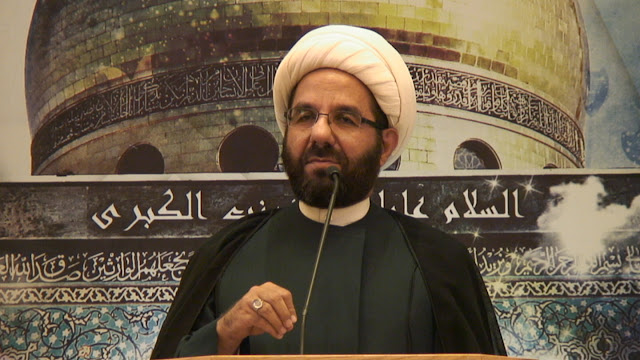During a July 24 interview on the Syrian opposition Orient News TV channel, host Dima Wannous asked her guest, Muhammad Masharqa, spokesman for the Free Palestinian-Syrian Assembly, why the Palestinian cause remained "the world's number one cause" over the years, even though the total number of Palestinians displaced equaled the number of people who fled Syria and Iraq in the past three months. Masharqa's response that the establishment of the state of Israel "was a colonialist enterprise with Western goals" did not satisfy Wannous, who said that unlike the Palestinians, the Syrians would not have forgiven Saddam his crimes against his own people merely for fighting their enemy. The Free Palestinian-Syrian Assembly, which was established in May in Gaziantep, Turkey, emphasizes Palestinian involvement in the Syrian revolution.
Dima Wannous: "Why has the (Palestinian cause) become the world's number one cause? I mean, the calamities of the other Arab nations over the years were no less tragic than the tragedy of the Palestinian people."
Muhammad Masharqa: "You can look at it from another perspective. The colonialist enterprise that brought about the state of Israel did not target only the Palestinian people but the entire Arab region. All the destruction in the Arab world can be traced back to the fact that there is an advanced post in the region for the colonialist powers, and it is called 'the state of Israel.'"
[...]
Dima Wannous: "In 1948, the years of the Nakba, the Palestinian people were driven out of their homes and their land. Approximately 750,000 people were displaced. You know the figures better than me. 750,000 Palestinians were displaced, only 150,000 of whom were expelled from Palestine. The others remained in their historical homeland, although in different places. If you take the total figure of 750,000, this is equal to the number of people who fled Syria and Iraq in the past three months. I repeat the question in another way, because you did not answer me the first time. Why is the Palestinian cause the world's number one cause?"
Muhammad Masharqa: "It is not the world's number one cause..."
Dima Wannous: "Well, after five years, many Syrians are asking why their cause has already been forgotten by most people. Moreover, the Palestinians are blaming the Syrians that their revolution is Islamic, and has failed to produce any free democratic ideology. They say that the Syrian revolution emerged from the mosques, and so on. How come yours is the world's number one cause? With all the great crimes perpetrated by the Israeli enemy - how many people were killed in the Palestinian 'Land Day?' You know better than me. Six people were killed. That's what I've read."
Muhammad Masharqa: "Look, it is important to seek answers in history. In what context was Israel established? Was the context Palestinian or did it pertain to the entire region? From this perspective... It constituted... It cooperated with the Apartheid regime in South Africa, and with other forms of colonization equipped with a myth. But it had clear political and economic goals right from the start. The centrality of the Palestinian cause stems from this. This is an objective thing. It is not because the Palestinians were good at propaganda."
Dima Wannous: "In other words, you've benefitted from the enemy being Jewish and Israeli..."
Muhammad Masharqa: "No, it was a colonist enterprise with Western goals."
[...]
Dima Wannous: "Saddam Hussein was idolized by the masses for firing 36 or 39 Scud missiles at Tel Aviv, while he was perpetrating crimes on a daily basis against his own people. The Palestinian greatly appreciated Saddam Hussein for this deed. If we want to talk about the Palestinians' approach to the liberation of the peoples, is it conceivable for them to support a murderer, an arch-killer, a dictator - all the foul terms apply to these leaders - just because he fired missiles at Tel Aviv? What about the (Iraqi) people?"
Muhammad Masharqa: "Consider this within the context of the historical culture of this nation, since the Prophet Muhammad and to this day. This culture still views the individual leader... All the people evoke the image of Omar Ibn Al-Khattab, whom we consider to be just caliph..."
Dima Wannous: "You are talking about people in general, but I'm talking about the Palestinians."
Muhammad Masharqa: "The Palestinian culture did not land from another planet..."
Dima Wannous: "It's not, but on this issue, it is different, because the Syrians would not have fallen in love with Saddam - if he were still alive - if he had started fighting the Syrian regime..."
Muhammad Masharqa: "That's just the way Arab Islamic culture is. Since the days of Omar Ibn Al-Khattab... We talk about Saladin, the savior, the hero, the inspiring leader. This is the culture of Arabs. This is the Arab-Islamic culture."
[...]
Dima Wannous: "Most of the Palestinians today support Hassan Nasrallah, considering him to be an instrument of liberation, but today, Hassan Nasrallah is doing his 'liberation' in Aleppo, not Palestine."
Muhammad Masharqa: "Who has the statistics...?"
Dima Wannous: "It's not about statistics. We watch and read what's going on. Obviously, I can't go one by one and ask each Palestinian for his opinion."
Muhammad Masharqa: "In my view, this generalization is inaccurate. Like all the people on Earth, the Palestinians are divided on these issues."
 We have lots of ideas, but we need more resources to be even more effective. Please donate today to help get the message out and to help defend Israel.
We have lots of ideas, but we need more resources to be even more effective. Please donate today to help get the message out and to help defend Israel.

 Elder of Ziyon
Elder of Ziyon








































